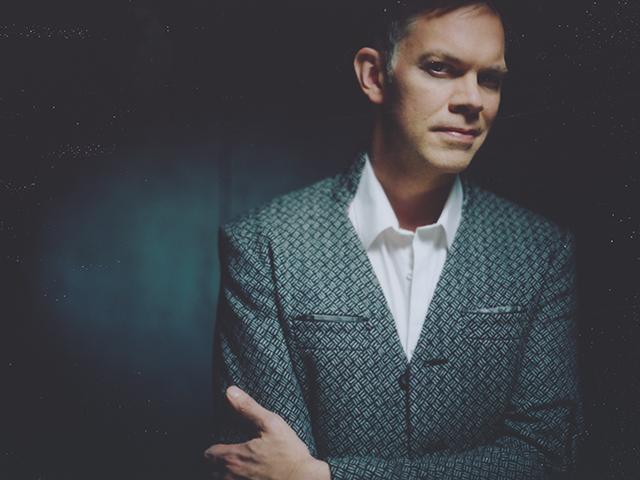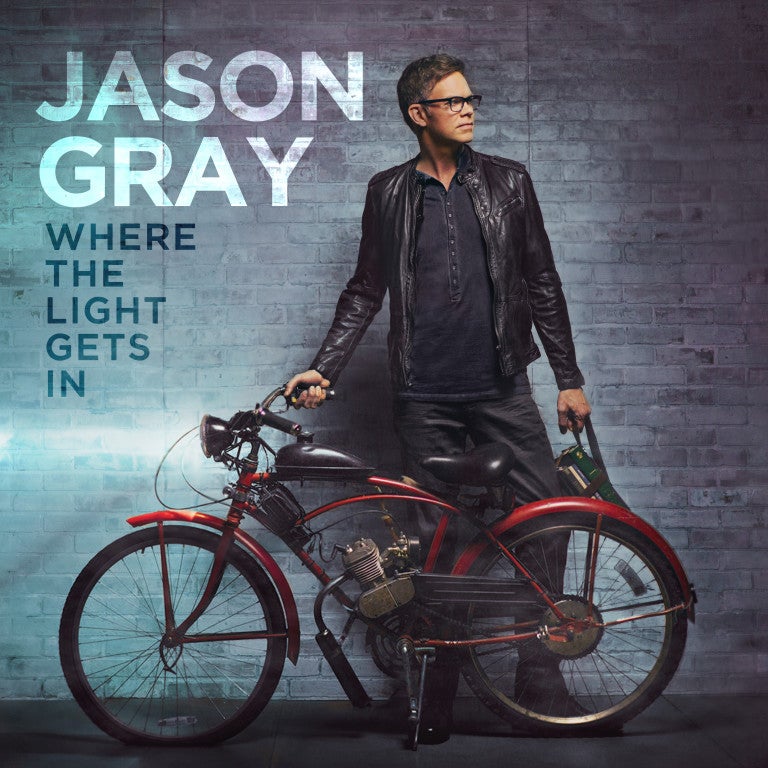Jason Gray on Where The Light Gets In
Christian singer/songwriter Jason Gray opened up to fans on his blog awhile back, sharing about his painful divorce. Holding onto hope, Gray is now opening up even more about that difficult time and how God is bringing him through.
In a recent interview with CBN.com, the "Remind Me Who I Am" singer poured out his heart about walking with Jesus through the valley and how it inspired his new album, Where The Light Gets In. Here are excerpts from that conversation:
Where is God in the midst of difficulties and pain? Did you learn something new about Him through it all?
These are tough questions and it can be so easy to give trite answers. Maybe the most truthful thing I can say is that I don't know. There was a moment in the midst of the worst of my own pain that I had a profound sense of God's presence. I remember being curled up on the floor of my bathroom, weeping in the middle of the night, and being surprised to hear the words, 'thank you, thank you,' coming out of my mouth.
But there were also other times when I felt like I was crying into a deep dark emptiness and like I was so alone. But I guess what I believe is that I wasn't altogether alone. It means a lot that we have a high priest who understands us, right? Because Jesus walked into the dark ahead of us, it gives us hope when we find ourselves in the dark that He's already there and will meet us--even if it's hard to see Him.
In terms of what I've learned, I suppose it feels more like I've had to unlearn a lot of things. There are ideas I've had about how God works, about my place in all of that, that no longer feel authentic to my experience. If I'm honest, I still carry a lot of disappointment and anger with both God and myself. Maybe that will heal and become something meaningful. It's already beginning to. Richard Rohr says that if we aren't transformed by our pain we will transmit it. I desperately do not want to transmit my pain. This requires a deep engagement with God, myself, and Truth. It's scary, invigorating, exhausting, refreshing. All of it all at once! Elizabeth Kubler Ross says, 'when you learn the lesson, the pain goes away.' I'm trying to learn the lessons.
There's a lyric I wrote that says, 'when my life broke in the middle, all of my answers turned into riddles.' I suppose I'm still in that space a lot, though a quiet confidence in the care and goodness of God is growing in me again. I'm grateful to have a long history of God's faithfulness in my life. If I didn't, I don't think my faith would have survived.
How has this tough time affected your songwriting?
It has clarified my sense of purpose. I've always imagined that the gift I have to bring is a sensitivity to the person in the pew who is hurting and may feel alienated by the happy praise songs and sermons we may hear in church. I've tried to make room for that person in nearly all of my songs, acknowledging pain or brokenness in a way that makes broken hearted people feel like they have a place at the table where hope is served. I've never felt more equipped to do that work. For a while now I've been thinking and writing about grief.
I've heard that David Dark once said, 'Christians should be the most robustly sane people on the planet,' and I agree with this. But it's also not my experience. (Laughs) I believe that a lot of the weirdness I see in the Christian community (and in my own life) comes from the pressure we put on ourselves to be positive and happy. Shakespeare wrote, 'The weight of this sad time we must obey. Speak what we feel, not what we ought to say.' I think this leads us to health. God gave us feelings to feel them, but a lot of us judge our feelings instead of feeling them or try to manage them by stuffing and trying to feel what we believe we ought to feel instead.
Sometimes the person who says, 'God is good all the time' may be hiding from their own difficult feelings. But I think health looks like this, we feel our feelings and then give them to God. The Bible doesn't say, 'don't be angry.' It says, 'be angry, but don't sin.' In most of my songs I'm trying to do the inner work I need to do myself and trust that it'll help others who are doing the same kind of work.
What can listeners expect to find on your new album, Where The Light Gets In?
In spite of all this talk of grief and pain, they can expect to find a lot of hope and joy on this record! In a recent interview, I talked about that experience we have when we're going through something difficult and how helpful it can be to talk about it--verbally process it--with friends. Until one day it isn't and it just feels like you're weary of talking about it. At some point, even if you aren't completely out of the woods yet, you just need to start having different conversations. I'd say that's a fair description of where I was at in the beginning of writing for this record. The wounds were still fresh, but I was so eager to have a new conversation. I was surprised that I could write a song like, 'Celebrate,' for this record, and several of the up, fun songs. I had a blast writing and recording these songs and I think people will taste that when they listen. I hope it makes people smile.
You've mentioned that some of your past songs were like medicine to you. Are there any new ones on this record that especially minister to you?
Wow. Great question. In a lot of ways, I'm still absorbing these songs. I'm probably dimwitted enough that God was like, 'I know what I'm going to need to do to get through to this guy. I'm going to make him to be a singer/songwriter so he has to sing these ideas over and over and over until he gets it.' I often have this experience where I thought I knew what a song meant when I wrote it, but further down the road I discovered it meant something else. It's very mysterious and humbling. I have a friend who says the songs know what's going on in us before we do. I like to think that the hopeful happiness of these songs is evidence that I'm on a good trajectory.
In terms of songs that move me from the new album, of course, 'Death Without A Funeral' is an important song about my divorce that affects me very deeply. So is, 'The Wound Is Where The Light Gets In.' 'Thank You For Everything' is the one that often makes me cry and that is a rare experience for me. I'm usually not moved by my own songs, it's like already knowing the punch line of your own jokes, so it feels like a gift when the tears show up.
What was the inspiration behind the title track, "The Wound Is Where the Light Gets In"?
After the divorce was final, I spent a good amount of time with a therapist trying to get my feet under me again. She randomly referenced a line from a Rumi poem, 'the wound is where the light enters you.' It rang all the bells inside of me and I knew I wanted to write a song around the idea. I believe that every preacher, more or less, has a single message that they preach a thousand different ways. The core idea that my work seems to keep circling is at the intersection of Romans 8:28 and 2 Corinthians 12:9, where our weakness meets the love that works all things together for good. This is most poignantly true to me when I think of how suffering can tenderize a person.
Elizabeth Kubler Ross says, 'The most beautiful people we have known are those who have known defeat, known suffering, known struggle, known loss, and have found their way out of the depths. These persons have an appreciation, a sensitivity, and an understanding of life that fills them with compassion, gentleness, and a deep loving concern. Beautiful people do not just happen.' In other words, the wound is where the light gets in.
Your last album was more about grief. This one's about hope. What are you hopeful for?
These days it seems best to take it a day at a time. I guess I hope to be able to continue in the work I get to do. It's more meaningful to me now than ever. I hope to better learn how to be the kind of father my sons need me to be. I hope to love well and be loved. I hope to be able to pay my bills and have a little bit extra to be generous with.







